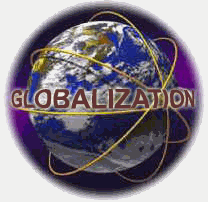GEOTHERMAL FINANCE 2007
November 12, 2007 at 9:37 pm | Posted in Earth, Economics, Financial, Globalization, Research, Science & Technology | Leave a commentGeothermal Finance & Investment
Summit
November 14-16, 2007 San Jose, CA
Infocast
Mon 11/12/07
Geothermal Finance & Investment
Summit
November 14-16, 2007 /San Jose,
CA
A Complete Conference Brochure
A Complete Listing Of Upcoming Conferences
OVERVIEW
The Geothermal Energy Industry
Connects With the Financial Community
for a Major Deal Making Event
Meet leading project developers, investors, lenders, power purchasers, technology experts and other active market players looking to craft deals and discover:
How to benefit from the increasing flow of available capital
Who will be making deals
What terms are available
What opportunities exist for partners & investors
About The Summit:
Geothermal is poised to meet the rapidly growing demand for renewable, zero-carbon power. Expansion opportunities across the US have enormous potential for geothermal energy growth. The opportunities for geothermal have never been more promising and the financial community sees it as the next big renewable play.
The Geothermal Finance & Investment Summit will bring together leading project developers, investors, lenders, EPC contractors, and other players to share their perspectives on the market for geothermal finance and investment. You will not only hear from this group about the latest developments in the geothermal finance and investment markets, but the Summit will also provide an outstanding opportunity to meet and network with active market players and to accurately gauge the current pulse of the industry.
The Summit is designed to provide the latest intelligence on the current market environment for putting together geothermal deals. The players in the market will discuss what they are looking for when they get involved in deals, what future opportunities exist for partners and investors, and how to successfully get deals done in 2008 and beyond.
You will hear:
Developers offer their perspective on the current market
Investors discuss criteria used in evaluating geothermal investments
Lenders outline terms and structures for debt-financing
Technology companies and EPC contractors provide their perspective on physical development of projects
Utilities discuss purchasing geothermal baseload to meet RPS requirements
Pre-Summit Workshop:
Financing Geothermal Projects
An in-depth full-day workshop, Financing Geothermal Projects, precedes the Summit. The workshop will provide an in-depth tutorial by top lawyers and consultants on how to best structure your project and allocate risk for maximum project success.
Upcoming Conferences
Wind Power Development Tutorial
Houston, TX
Nov. 28-30, 2007
FERC Electricity 101
Los Angeles, CA
Dec. 3-4, 2007
Electric Utility Project Portfolio Management
Charlotte, NC
Dec. 3-4, 2007
Emission Accounting Conference
Charlotte, NC
Dec. 3-4, 200
Demand Response: How Do We Make It Work
Best
Arlington, VA
Dec. 3-4, 2007
Electric Power Planning For Regulated and
Deregulated Markets
Arlington, VA
Dec. 3-4, 2007
Sarbanes-Oxley 101
Los Angeles, CA
Dec. 3-4, 2007
FERC Electricity 101
Los Angeles, CA
Dec. 3-4, 2007
Carbon Capture Status and Outlook
Washington, DC
Dec. 3-5, 2007
Transmission Renaissance 2007
Washington, DC
Dec. 3-5, 2007
Analyst Training in the Power and Gas Sector
Stamford, CT
Dec. 4-5, 2007
FERC Natural Gas 101
Los Angeles, CA
Dec. 5, 2007
In-Depth Introduction to Electricity Markets
Los Angeles, CA
Dec. 5-6, 2007
Introduction to Electric Utility Systems for
Non-Engineers
Los Angeles, CA
Dec. 5-6, 2007
Fundamentals of Energy Trading and Hedging
Miami, FL
Dec. 10-11, 2007
Fundamentals of Energy Options & Option
Hedging
Miami, FL
Dec. 12-13, 2007
Please forward this invitation to colleagues who may benefit from attending.
Infocast@calcium.netcontentinc.net
PowerMarketers.com • PO Box 2303 • Falls
Church • VA • 22042
PowerMarketers.com
Geothermal Finance & Investment Summit
November 14-16, 2007 San Jose, CA
Infocast (Infocast@calcium.netcontentinc.net)
Geothermal Finance & Investment Summit
November 14-16, 2007 / San Jose, CA
Mon 11/12/07
BANK FOR INTERNATIONAL SETTLEMENTS REVIEW NOS. 129-126 2007: ISLAMIC FINANCE & CHINA
November 12, 2007 at 6:15 pm | Posted in China, Economics, Financial, Globalization, Islam, Research, Third World | Leave a commentBIS Review No 129 available
BIS Review
Bank for International Settlements
Mon 11/12/07
Please find BIS Review No 129 attached as an Adobe Acrobat (PDF) file. Alternatively, you can access this BIS Review on the Bank for International Settlements’ website by clicking on http://www.bis.org/review/index.htm
What’s included?
BIS Review No 129 (12 November 2007)
Axel A Weber: Current challenges for monetary policy
Zeti Akhtar Aziz: Malaysian financial sector developments
Caleb M Fundanga: Integrity and professionalism in finance, industry and business
Zamani Abdul Ghani: Malaysia’s role as an international Islamic financial centre
Frederic S Mishkin: Availability of credit to small businesses
Hermann Remsperger: Financial stability issues – a view from the Bundesbank
________________________________
please e-mail press.service@bis.org
BIS Review No 129 available
Press, Service (Press.Service@bis.org)
Publications, Service (Publications@bis.org)
Mon 11/12/07
Please find BIS Review No 128 attached as an Adobe Acrobat (PDF) file. Alternatively, you can access this BIS Review on the Bank for International Settlements’ website by clicking on http://www.bis.org/review/index.htm
What’s included?
BIS Review No 128 (9 November 2007)
Ben S Bernanke: The economic outlook
Jean Claude Trichet: The emergence of China in the global economy – a European perspective
European Central Bank: Press conference – introductory statement
Shamshad Akhtar: Islamic finance – its sustainability and challenges
Jean-Pierre Landau: Some thoughts on securitization and financial turbulences
Kevin M Warsh: The end of History?
________________________________
please e-mail press.service@bis.org
Please find BIS Review No 127 attached as an Adobe Acrobat (PDF) file. Alternatively, you can access this BIS Review on the Bank for International Settlements’ website by clicking on http://www.bis.org/review/index.htm
What’s included?
BIS Review No 127 (8 November 2007)
Ben S Bernanke: Microfinance in the United States
Y V Reddy: Developing debt markets in India – review and prospects
Stanley Fischer: The growth of the Israeli economy in the long run
Paul Jenkins: North America in today’s global economic setting
Frederic S Mishkin: Financial instability and monetary policy
________________________________
please e-mail press.service@bis.org
Please find BIS Review No 126 attached as an Adobe Acrobat (PDF) file. Alternatively, you can access this BIS Review on the Bank for International Settlements’ website by clicking on http://www.bis.org/review/index.htm
What’s included?
BIS Review No 126 (7 November 2007)
Toshihiko Fukui: Bank of Japan’s view on developments in economic activity and its conduct of monetary policy
Nicholas C Garganas: EU enlargement
Nicholas C Garganas: Does one size fit all? Monetary policy and integration in the euro area
Njuguna Ndung’u: Implications of capital flight for macroeconomic management and growth in Sub-Saharan Africa
Njuguna Ndung’u: Survey on bank charges and lending rates in Kenya
Randall S Kroszner: The challenges facing subprime mortgage borrowers
________________________________
please e-mail press.service@bis.org
BIS Review
Press, Service (Press.Service@bis.org)
Publications, Service (Publications@bis.org)
Mon 11/12/07
BUNDESBANK DISCUSSION PAPER: BUNDESBANK RESEARCH CENTRE
November 12, 2007 at 4:42 pm | Posted in Economics, Financial, Globalization, Research | Leave a commentBundesbank Discussion Paper
Bundesbank Research Centre
Newsletter Forschungszentrum Bundesbank
Title: International cooperation on innovation: empirical evidence for German and Portuguese firms
Mon 11/12/07
The Bundesbank Research Centre has released a new Discussion Paper (No 30/2007).
Author/s: Pedro Faria Tobias Schmidt
Title: International cooperation on innovation: empirical evidence for German and Portuguese firms
Abstract: In this paper we investigate the factors that lead firms to cooperate withpartners from foreign countries on innovation activities. Portuguese and German data from the harmonised Community Innovation Survey (CIS III) allow us to compare innovation cooperation behaviour of private firms in the two countries. Using a bivariate probit model, we show that the characteristics of firms cooperating with foreigners in both countries are quite similar. International activities other than cooperation, firm size and the importance of protection methods for knowledge have a positive influence in both countries on the decision to cooperate with foreign partners. Some differences remain, however: In Germany, exporters are more likely to cooperate with foreign partners than non-exporters, whereas in Portugal this is not the case.
http://vo5555.newsletter.bundesbank.de/servlet/rd?l=Diskussionspapiere-JOKA-PJN1-M7DJ-ONL3-NWSL12
—————————————————————————————————
Bundesbank Research Centre
vo5555@newsletter.bundesbank.de
—————————————————————————————————
Deutsche Bundesbank Forschungszentrum Research Centre
Wilhelm-Epstein-Strasse 1460431 Frankfurt am Main Germany
Kontakt: presse-information@bundesbank.de
Bundesbank Discussion Paper
Newsletter Forschungszentrum Bundesbank
Title: International cooperation on innovation: empirical evidence for German and Portuguese firms
(vo5555@newsletter.bundesbank.de)
Mon 11/12/07
AFRICAN OIL POLITICS: BOOK
November 12, 2007 at 1:14 am | Posted in Africa, Economics, Financial, Globalization, Oil & Gas, Third World | Leave a commentPoisoned Wells The Dirty Politics
of African Oil
Nicholas Shaxson
Reviews
‘Shaxson argues convincingly that the failed oil states of Africa will be the next Great Game in a world still addicted to oil and increasingly willing to fight for it. This book is a must read for anyone concerned about Africa and Big Oil.
Shaxson’s obvious love for the continent and its people comes clearly through in his writing but does not temper his revulsion at the complex and bloody mess he found there. He digs deeply to uncover the real story beneath the headlines and to eloquently explain an Alice in Wonderland world of money, corruption, war and intrigue. It is a story well told that has the power to stun even the most hardened observer of Africa’s tragedy. Yet at the same time Shaxson powerfully describes people who have battled against the corrupt, the venal and the just plain evil, making a book that is often as inspiring as it is horrifying. Mixing the personal and political, he has written a compelling story that explains one of the most baffling riddles of the modern world: why has oil become a curse for Africa, not a blessing?’ – Paul Harris, US Correspondent, The Observer
‘Nicholas Shaxson has traveled to some of the most dangerous and dysfunctional nations on the planet, delved into the murky depths of the African oil business and emerged with a grisly but compelling tale of greed, corruption and violence. There are still some who believe that oil can rescue Africa from poverty at the same time as saving America from its fatal dependence on suppliers in the Middle East. In this remarkable book, the fruit of years of painstaking research, Shaxson exposes oil as a destroyer, not a savior, of all that is best in Africa.’ – Victor Mallet, Asia editor, Financial Times, and author of The Trouble with Tigers: The Rise and Fall of South-East Asia
‘This is a splendid book about a crucial subject. We need oil. We want the countries that sell it to us to be stable. But oil itself destabilizes them, unless they were mature democracies before they discovered it. Nicholas Shaxson has put in more legwork in wrecked African petro-states than any other reporter I can think of. The result is a cracking tale of blood, champagne and the ‘Devil’s excrement.’ – Robert Guest, former Africa editor, The Economist, and author of The Shackled Continent
‘This book will be unsettling for those with preconceived ideas about the oil industry, international business or African politics. Shaxson shows that there are no easy answers to questions on the role of multinational oil giants in Africa, or how to tackle the corruption that is often the result of their oil deals. He shows there are many, many complicated shades of grey–but he does so, thankfully, using such a colorful style and language that the book comes to life and is a pleasure to read.’ – Hugh Williamson, Berlin correspondent, Financial Times
‘Shaxson’s warning is that we ignore the impact of oil and gas extraction in Africa at our peril; its impact will spread. How many policy makers in oil companies or governments will listen to these warnings? At least I hope they read this book.’ – Alex Vines, The World Today
‘…atmospheric and highly readable new book about African oil’. – Nick Kotch, Mail and Guardian (South African)
‘Shaxson completes a vivid and fascinating journey.’ – African Business
Description
An explosive story in which journalist Nicholas Shaxson speaks with African presidents, oil barons and ordinary citizens to expose how rich countries’ oil companies exploit African nations, leaving them ravaged, corrupt, and penniless.
Contents
Introduction: A Paradox of Plenty in the New Gulf
Fela Kuti: How Things Fell Apart in the Oil Boom
Pedro Motú: A Morph to Another World
Abel Abraão: Wielding the Oil Weapon
Omar Bongo: Taking the Red Pill
Eva Joly: Elf Africaine and the Rabbit Warren
André Milongo: Golden Eggs
Obiang Nguema: What Caring Neighbors Do
Fradique de Menezes: Battening Down the Hatches
Arcadi Gaydamak: Between Global Borders
Dokubo-Asari: Corroding the Soul of a Nation
Global Witness: Hooligans and Rock Stars
Conclusion: Drawing the Poison
Author Biographies
NICHOLAS SHAXSON is a journalist who writes regularly for the Financial Times, The Economist, and several other publications. He is an associate fellow with the Royal Institute of International Affairs (Chatham House) in London, UK, and a world authority on the politics and economics of the oil-producing nations of the Gulf of Guinea. He has been covering the African oil trade for over ten years.
Related information and services:
——————————————————————————–
You may also be interested in:Diversity and (A)Symmetry
Why American Foreign Policy Fails
The Making of A Digital World
Cultural Relativism in the Face of the West
The Political Economy of Regionalism in East Asia
——————————————————————————–
Macmillan Publishers
Houndmills, Basingstoke, Hampshire, RG21 6XS, England
Poisoned Wells The Dirty Politics of African Oil
Nicholas Shaxson
BALANCE OF POWER: BOOK
November 12, 2007 at 12:26 am | Posted in Books, Globalization, History | Leave a commentThe Balance of Power in World
History
Edited by: Stuart J. Kaufman
Richard Little and William C.
Wohlforth
Reviews:
‘[…] the authors have addressed a crucially and lamentably under-researched area, and done a very good job in bringing material into the light that will generate a great deal of positive debate both within realism and outside it.’ – Professor Michael Sheehan, University of Wales Swansea, UK
Description:
The balance of power is one of the most influential ideas in the theory and practice of international relations and it plays a central role in both scholarly debates about international politics and policy debates about the current dominance of the United States at the start of the twenty-first century. Although it is often treated as a universal concept, theorizing about the balance of power is almost entirely based on the experience of modern European history. The theory has never been systemically and comprehensively examined in pre-modern or non-European contexts. This book aims to redress this shortcoming. It presents eight new case studies of balancing and balancing failure in pre-modern and non-European international systems. The inescapable conclusion emerging from this collective, multidisciplinary and international research is that much of the conventional wisdom about the balance of power cannot survive contact with non-European evidence.
Contents:
Introduction: Balance and Hierarchy in International Systems; S. J. Kaufman, R. Little & W.C.Wohlforth
Balancing and Balancing Failure in Biblical Times: Assyria and the Ancient Middle Eastern System 900-600 BCE; S.J.Kaufman & W.C.Wohlforth
The Greek City States in the Fifth Century BCE: Persia and the Balance of Power; R.Little
Intra-Greek Balancing, the Mediterranean Crisis of ca. 201-200 B.C., and the Rise of Rome; A.M.Eckstein
The Forest and the King of Beasts: Hierarchy and Opposition in Ancient India (c.500 – c.232 BCE); W.J.Brenner
The Triumph of Domination in the Ancient Chinese System; V.Tin-bor Hui
‘A Republic for Expansion’: The Roman Constitution and Empire and Balance of Power Theory; D.Deudney
Hierarchy and Resistance in the American State-Systems, 1400-1800 CE; C. Jones
Stability and Hierarchy in East Asian International Relations, 1300 to 1900CE; D.C. Kang
Conclusion: Theoretical Insights from the Study of World History; S.J.Kaufman, R.Little & W.C.Wohlforth
Author Biographies:
STUART KAUFMAN is Professor of Political Science and International Relations at the University of Delaware, USA. In 1999, he served as Director for Russian, Ukrainian and Eurasian Affairs on the U.S. National Security Council staff. His book, Modern Hatreds: The Symbolic Politics of Ethnic War, won the 2003 Grawemeyer Award for Ideas Improving World Order.
RICHARD LITTLE is Professor of International Politics at the University of Bristol, UK. He is a former editor of the Review of International Studies and President of the British International Studies Association. His most recent book is The Balance of Power in International Relations: Metaphors, Myths and Models.
WILLIAM C. WOHLFORTH is Professor of Government at Dartmouth College, USA. He is Associate Editor of the journal Security Studies. His book World out of Balance: International Relations Theory and the Challenge of American Primacy, co-authored with Stephen G. Brooks, is forthcoming.
Related information and services:
——————————————————————————–
You may also be interested in:
Diversity and (A)Symmetry
Why American Foreign Policy Fails
The Making of A Digital World
Cultural Relativism in the Face of the West
Power and Resistance in the New World Order
——————————————————————————–
Macmillan Publishers Limited
Houndmills, Basingstoke, Hampshire, RG21 6XS, England
The Balance of Power in World History
Edited by: Stuart J. Kaufman, Richard Little and William C. Wohlforth









